Table of Contents Show
Have you dreamed of pulling into your campsite, having a hot meal ready and waiting for you? If so, you’re like the RVers we saw discussing using slow cookers while traveling.
No matter what you’re cooking, you must do so safely. Failing to do so could lead to a severe disaster.
Today, we’ll discuss the dangers of cooking on the road and provide tips for making your travel day meals a breeze.
Let’s get going!
Full-Time RVers Using Slow Cookers While Traveling
Recently, we saw a full-time RVer ask about using a slow cooker while traveling in their motorhome. The post received a relatively equal amount of comments on both sides of the discussion. Some stated it was a terrible idea, and others admitted to doing it all the time.
The question was due to their desire to have a meal waiting for them when they arrived at their destination. This is especially helpful as making a meal is the last thing you’ll likely want to do after getting your RV level and setting up camp.
So, whether you think it’s a crazy idea or not, it’s a logical question to ask and deserves a response.
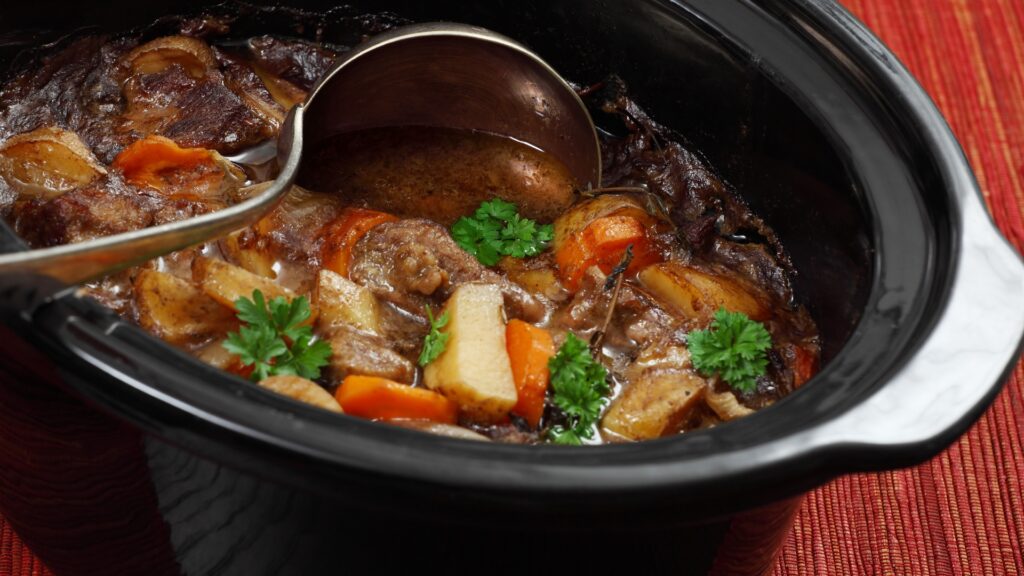
Is Using a Slow Cooker While Driving Safe?
Driving can be dangerous, let alone while using a slow cooker. While it is possible to prepare a meal while traveling down the road, it’s not always the best idea. We’ve all experienced at one point or another that things don’t always go as planned.
Unfortunately, it doesn’t matter how good or bad of a driver you are. Some things are simply out of your control. You may need to slam on the brakes, swerve, or perform a variety of other maneuvers. Your eyes should be on the road, not whether your slow cooker stays in its place.
Dangers of Using a Slow Cooker While Driving
When it comes to using a slow cooker while driving, there are some things you need to consider. Let’s look at some of the dangers of using these appliances to help keep you as safe as possible.
Potential for Spill
One of the most significant risks of using a slow cooker while driving is the potential for a spill. As you and your vehicle travel down the road, the cooker’s contents may move back and forth. It could even spill out if you hit a big pothole or other dip in the road.
Depending on the location of the slow cooker, this could lead to burns for those in the area or a giant mess. Additionally, hot food and liquids can cause severe damage to the interior surface of your vehicle.
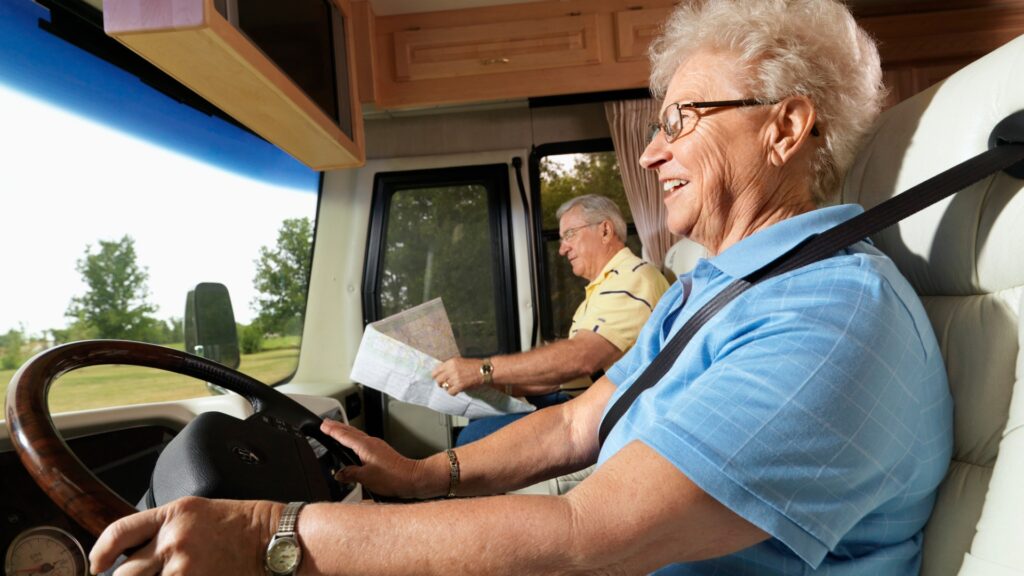
Electrical Hazards
Some individuals connect slow cookers to inverters or converters and get power from their vehicles. However, some of the low-quality options for these pieces of equipment can be sketchy. Their ability to provide a consistent or stable power source can create problems and damage the slow cooker.
In addition, if you accidentally push your components too hard, you could end up with an electrical fire. Unfortunately, the smell of the cooking food may cover the smell of melting wires. Using a slow cooker in your vehicle could pose a severe fire risk.
Unstable Cooking Environment
Most slow cookers require a flat, stable surface to distribute the heat evenly. While a sink or other area may be flat, nothing will be stable while driving.
Because the cooker isn’t spreading the heat evenly, you increase the chances of food not cooking thoroughly. This can lead to foodborne illnesses in certain foods that require reaching a specific temperature.
Conversely, this can lead to overcooking food if it receives too much heat. You may unknowingly damage or ruin your meal by trying to save some time and cooking while driving.
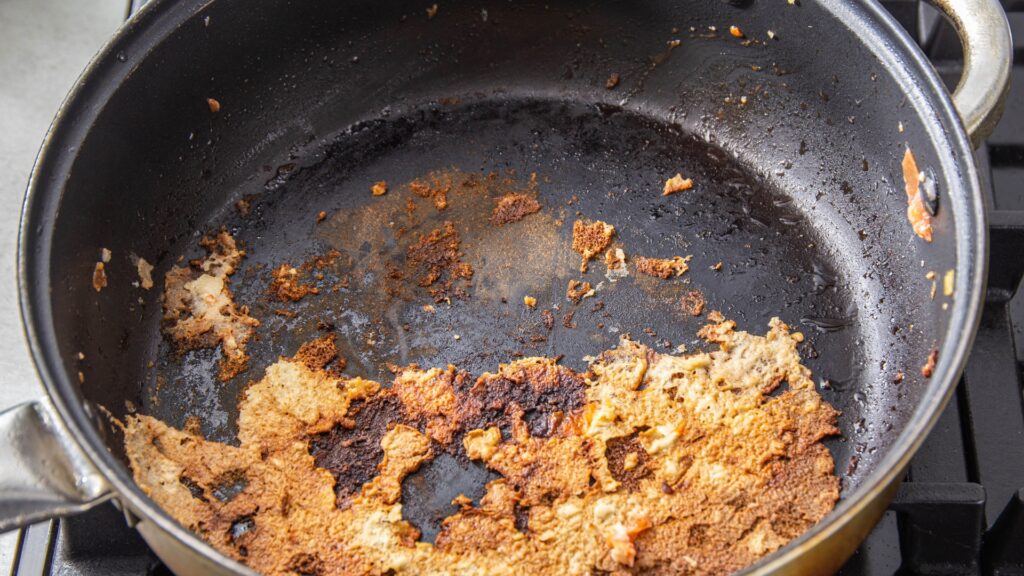
Traffic Accidents or Tire Blowout
Traffic accidents and tire blowouts are bad enough. You don’t want to make them worse by having a slow cooker full of hot juices and meat come flying at you.
As we said, some things are simply beyond your control. We’ve seen some pretty crazy drivers on the roads that don’t take safety seriously. You never know when one of them could run into you and your vehicle.
Additionally, a tire blowout can still occur even if you do your pre-inspection before hitting the road. There have been plenty of times when drivers have lost control because of a failure. Again, you want to avoid piping-hot ingredients flying at you.
Travel Day Meal Tips
Long travel days can cause you to work up an appetite. However, while stopping for fast food is quick and easy, it’s expensive and unhealthy. Here are some tips for handling meals on travel days.
Plan Ahead
The most important thing you need to do is plan. By planning, you’ll know your route and approximately how long you’ll drive if things go as planned. This can help you estimate how much food and how many meals you must prepare.
Additionally, it’ll help you to build time into your schedule for meals. You can make stops so the driver doesn’t have to eat while keeping their eyes on the road.
This is also an excellent way for them to take a break so they can hit the road refreshed after you wrap up your meal.
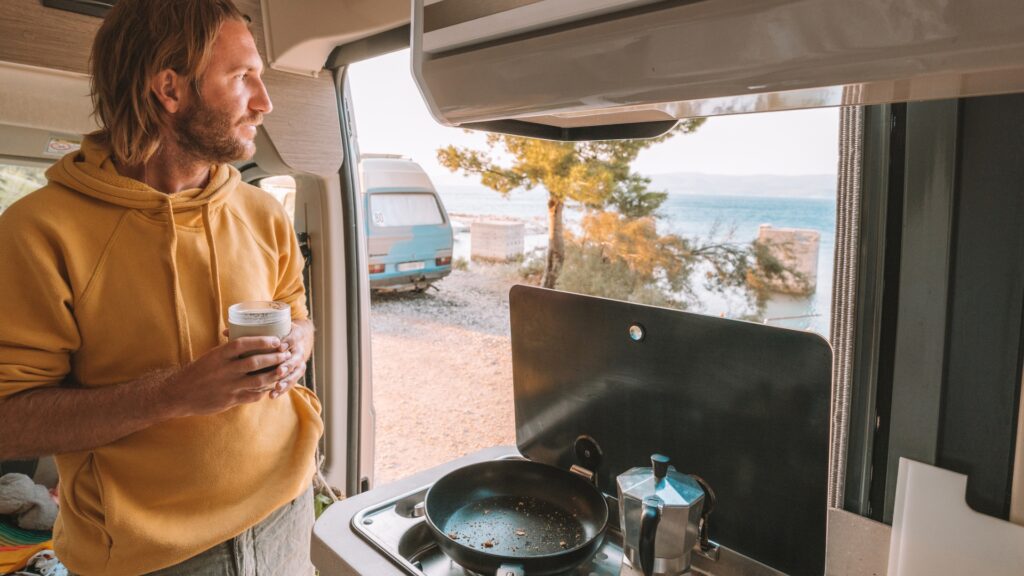
Prep in Advance
Another thing you can do to make meals easier while traveling is prepare as much as possible in advance. Make salads, sandwiches, and any other potential items in advance.
This way, when it’s finally time to stop for a meal, all you have to do is grab it and start eating. You won’t have to worry about combining various ingredients or wasting time.
For ease, you may need storage containers or ice packs to keep food separate and fresh. However, what you’ll need will significantly depend on the food you plan to consume while traveling.
Keep It Simple
One of the biggest mistakes you can make is overcomplicating a task. Traveling is stressful enough. Don’t make it even worse by trying to prepare a complicated meal. Stick with sandwiches, wraps, salads, and other simple items.
When choosing your foods, make sure to choose light food items. You don’t want something heavy that will leave you feeling terrible. Unfortunately, only you can know how your body responds to various foods.
Pro Tip: Here are a few Easy No Cook Camping Recipes for Your Next Meal!
Keep Condiments and Seasonings Accessible
Condiments and seasonings can go a long way to enhance the flavors of your food. Get a container to store them in your glove box or other easily accessible location. You never know when something you’re eating will require salt, pepper, or ketchup.
Use Disposable Plates and Utensils
While we typically don’t encourage single-use plastics or items, they’re best in these situations. Eating your food and tossing everything in the trash can help avoid clutter in your vehicle. Reuse plastic grocery bags to store your trash, tie it up, and toss it into the next garbage you see.
Is Using Your Slow Cooker While Driving Worth It?
Unfortunately, while we love the idea of using a slow cooker while driving, the risk isn’t worth it to us. While it would likely be fine 99.9% of the time, it’s that 0.1% of the time that is very concerning.
We wouldn’t wish the burns these situations could cause on anyone. So, make sure you think twice about trying to prepare your next meal while driving.
Do you know someone who uses a slow cooker while on the road?
Last update on 2024-10-21 / Affiliate links / Images from Amazon Product Advertising API


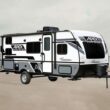

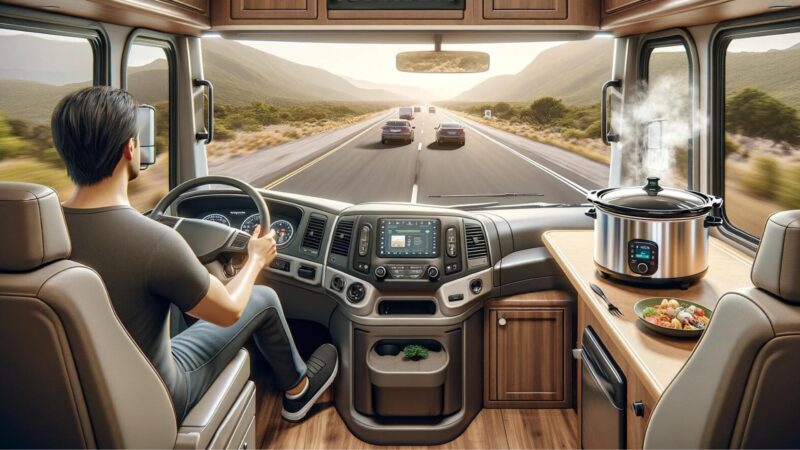

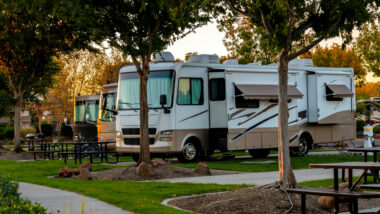

I purchase pre-packaged meals from Publix, Fresh Market and a local deli. I can keep things in the freezer until I’m ready to fix dinner. These are normally microwavable meals and excellent; keep some frozen boxed veggies in the freezer and maybe a microwavable baked potatoes…..I even purchase a couple bags of pre washed salad…saves time and hardly any prep….I just purchased a small air fryer and hope to find some great recipes to take along with us.